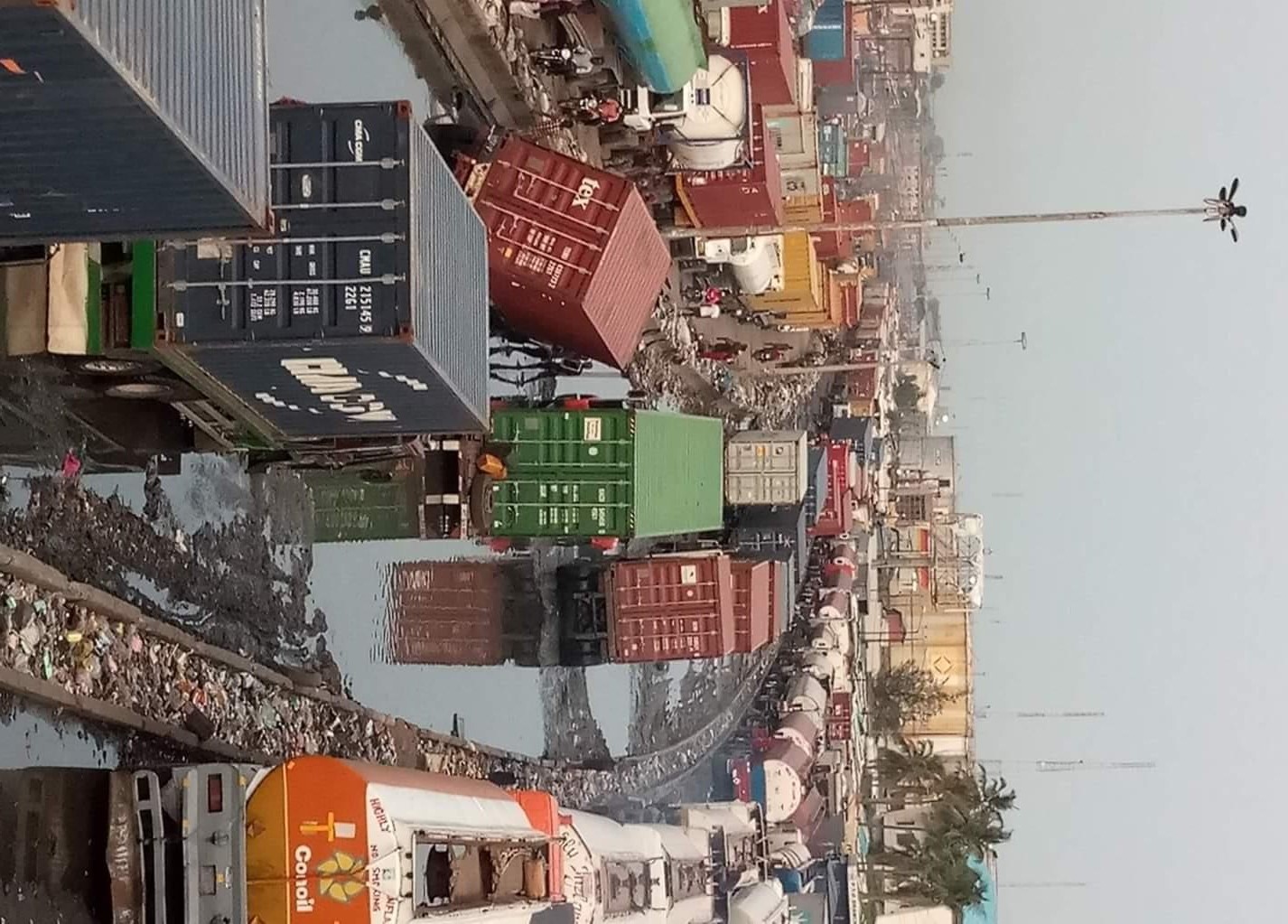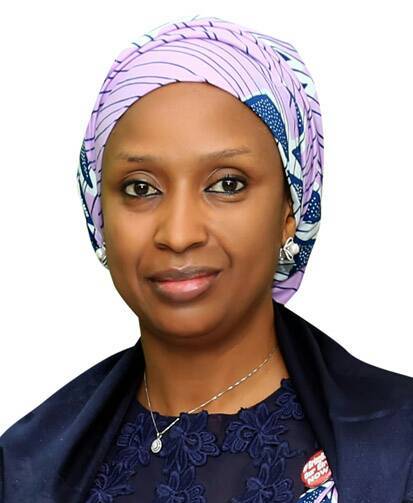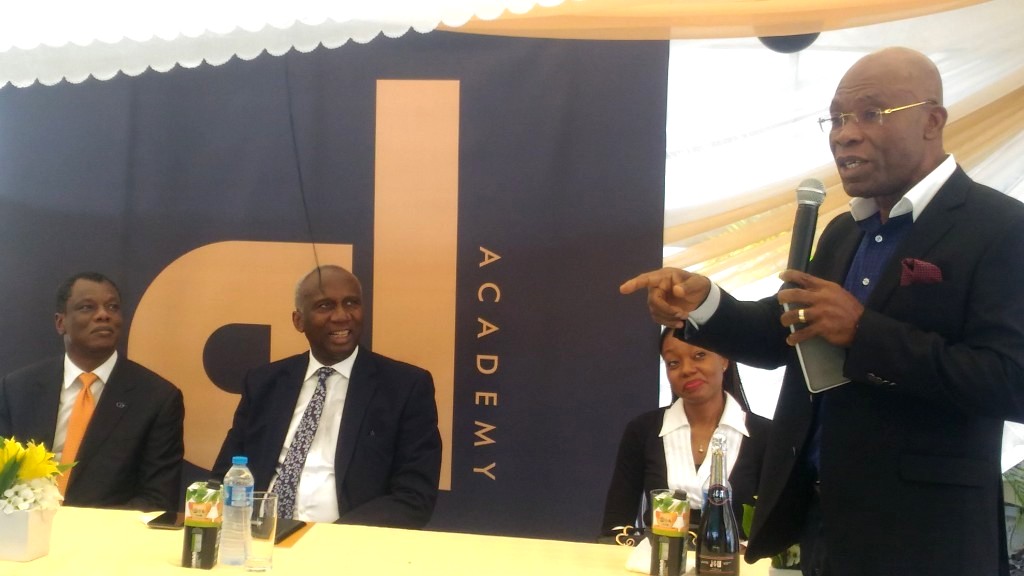New report coming from a survey carried out by the Lagos Chamber of Commerce and Industry (LCCI), Organised Private Sector and the Centre for International Private Enterprises in 2018, has shown that poor ports facilities drained the Nigerian economy about N3.49tn within the year under review.
Details showed that whereas the federal government lost about N1tn, corporate bodies whose businesses are tied to port operations lost a whooping N2.5tn in 2018.
The report further revealed that “Profit margins of corporate entities using the Apapa port have gradually dwindled as logistics cost has increased significantly.
“A review of the financial statements of some publicly quoted firms gives credence to this. “Honeywell Flour Mills Plc, a major flour milling company in Nigeria attributed the dip in their profitability in 2017 to the Apapa traffic gridlock saying that that the dilapidated road infrastructure and chaotic traffic situation in and around the nation’s seaports made it inordinately difficult, and enormously expensive to transport goods out of the factory in Tin-Can Island.
Giving insights on the report, chief executive of OCP African Fertilizers Nigeria Limited, Mr Umar Obasi decried that “A country without modern transportation systems and the infrastructure that supports it, shall remain underdeveloped and businesses will continue to drop than grow”.
According to him, “Taking the modernization of rail as an Economic Development indicator, it is important to understand that the overall logistics infrastructure of a nation can be evaluated based on ten categories of major metropolitan indices including effective transportation and distribution industry, transport and distribution workforce, road infrastructure, road congestion, road conditions, interstate highway access, vehicle taxes and fees, Railroad access, water, port access, Air cargo access.”
Obasi averred that unless Nigeria puts in place, a national logistics strategy that will upgrade physical infrastructure with inputs from information technology in partnership with stakeholders, chances of growth will continue to be slim.
Reviewing the LCCI Report on impediments of the nation’s logistics sub sector, Founder of Red Star Express, a courier and logistics company, Mr. Sonny Allison decried that the level of infrastructure at the ports does not represent the whole infrastructure development body language of the current administration since 2015.
He said “There is almost total lack of needed port infrastructure to fast track the development of the economy and deepen ease of doing business at the ports.
Allison noted that with the observed 40% deficit in infrastructure availability at the ports, business operators including importers and exporters have been losing a lot in haulage loses due to high risk incidences along every port access road.
Red Star Express boss averred that “It is an irony that an economy that needs everything cannot muster a growth rate of more than 2% and the blame lies at the foot of lack of infrastructure, which kills our ability to compete.
“The result is that imported goods are cheaper than locally manufactured goods. “Nigeria has a lot to offer the world and especially West Africa but it cannot do so with its hands tied by forces beyond her control.
“It behoves operators in the industry to continue the agitation for the overall improvement of infrastructure in Nigeria across all sectors, as this is the foundation upon which all businesses rest and must rise or fall. “Logistics is a cost centre and for it to be profitable to the Industry it must deliver a value that is far, far greater than its nominal cost.
“Alas poor planning and bad infrastructure can ruin a good economic strategy. The politicization of selection of logistics strategy can lead to the engagement of under-qualified partner and this can derail a timely delivery of election!! And we know that where there is no steady governance, it is hard to maintain a steady and rapid economic development,” Allison submitted.
Though the report presented by the Director General of the African Centre for Supply Chain, Dr Obiora Madu, agreed that the value of the logistics sector as at 2017 was N200 billion in terms of the value of goods and services as well as the value of the decayed infrastructures.
According to him, the logistics sector is the fastest growing industry in the world and this is time for the Nigerian government to assist in growing the sub-sector in Nigeria.
He averred that logistics and supply chain businesses in Africa face intense pressure to deal with infrastructure growth and capacity challenges, as well as satisfy the increased thirst for logistics information across the continent.
In his submission, “The 2018 report was intended to drive organizations to scientifically manage their logistics operations with a view to increasing value for their businesses while keeping cost and capacity issue in check”.
“Infrastructure is critical to any logistics and supply chain development objective.
“Health of available infrastructures and level of integration between them directly impact logistics access, cycle-time, reliable and cost.
“Maintaining a competitive logistics and supply chain ecosystem requires a constant and strategic upgrade of regional infrastructure-mix.
“It demands high performing government institutions, financing and industry skills. “Logistics is, therefore, the main indicator of economic advancement expressed boldly in trade facilitation and business competitiveness.
“Unfortunately, there are obvious regional and national deficits in our logistics infrastructure thus affecting trade competitiveness negatively.”









